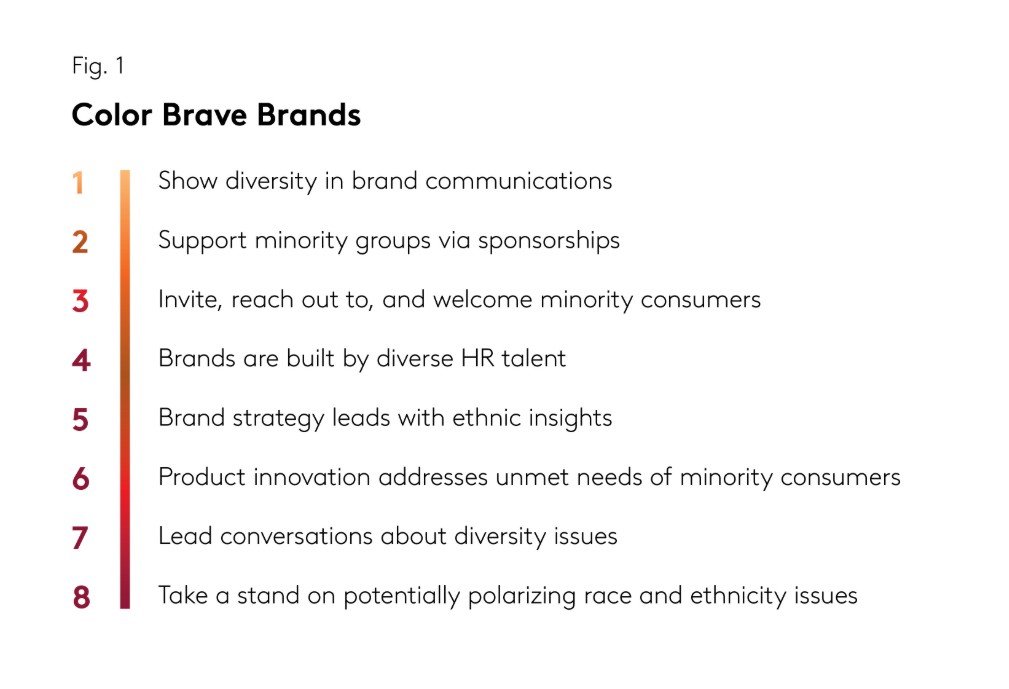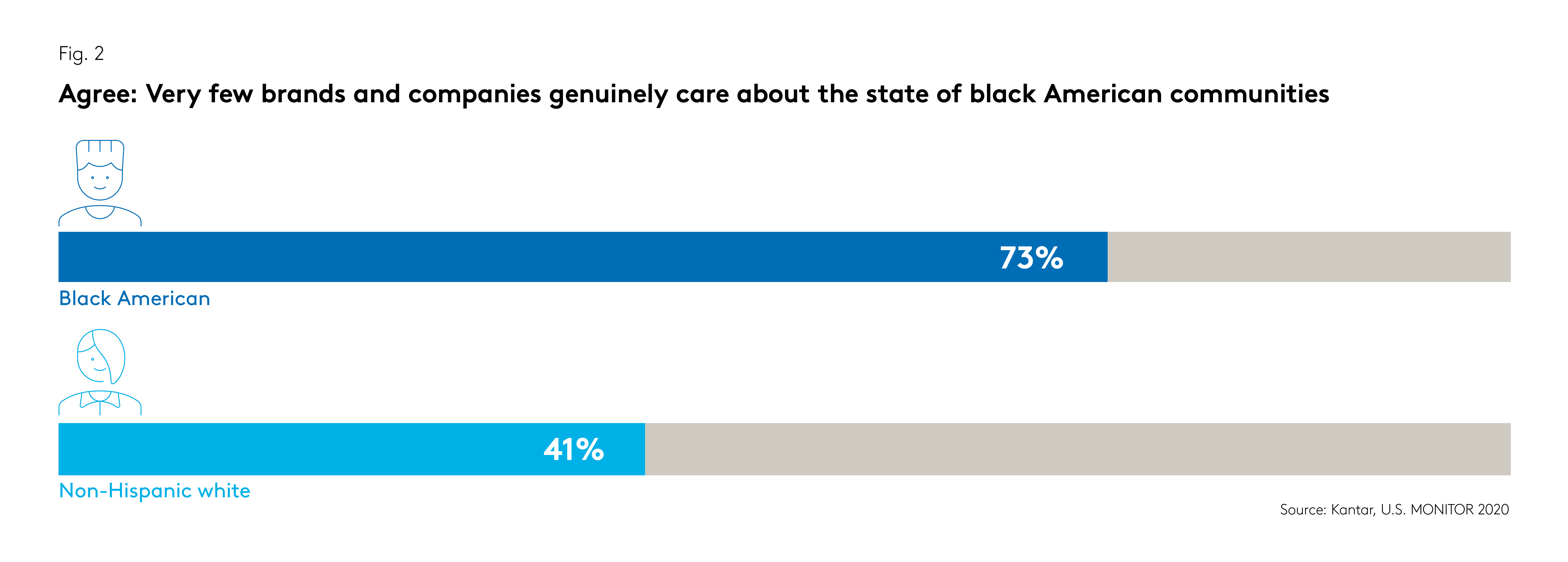At Kantar we are focused on understanding people, and are committed to understanding the culture shock occurring across the United States due to the deaths of black Americans stemming from racial bias. We are devoted to amplifying the voices of the unheard so we can hear them, acknowledge them, and stand with them. Beyond ourselves, brands that wish to be an intrinsic part of the social fabric must go beyond passive color blindness and learn to be color brave.
Color bravery, originally introduced by financial executive Mellody Hobson in a 2014 TED Talks, means being realistic about race issues in our country and addressing them directly rather than pretending they don’t exist. The alternative, color blindness, has allowed businesses to ignore inequalities in the marketplace and save money by treating everyone the same. At Kantar, we have been talking about this issue for quite a while. In 2014, we analysed what it takes to be color brave in order and developed these eight steps.

Source: Kantar, US Monitor, Identity & Inclusion Insights
We know that racial bias, economic disparity, and discrimination have continued to be a part of black American lives. Today, we know emotions are heightened due to the impact of COVID-19 and that black Americans, in particular, are feeling more uncertain and overwhelmed. An astounding 73% of black Americans feel few brands genuinely care about the state of black American communities. But when they do, 88% of black Americans agree that those brands deserve their loyalty.

We cannot remain silent, be idle, or turn a blind eye. Being color brave can feel risky and uncomfortable, but there is a different role for brands to play:
- Starting and leading the conversation
- Facilitating exchange
- Listening and supporting
But brands, and the marketers behind them, help shape American society and culture. As marketers, we have a responsibility to protect people and help them thrive; brands cannot exist without consumers. Marketers that don’t take action now put their employees, their consumers, and their own future at risk. It’s time to use our influence to uphold black Americans; it’s time to act.
Learn more
The question is not whether to participate, but how. Kantar is committed to helping marketers listen, understand and act. For more information, please contact Kantar today.

